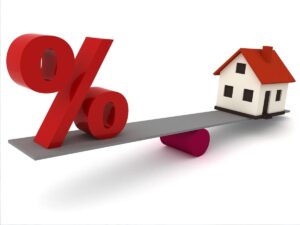Foreclosure filings low record
During the pandemic, foreclosure filings saw their lowest numbers in more than a decade. This record low, caused by new federal COVID-19 relief procedures regarding foreclosures and mortgages, came at a critical time for many Americans struggling to make ends meet during the pandemic. However, many of these relief procedures are ending, and as they do, foreclosure rates are once again reaching pre-COVID levels and possibly beyond. In the first six months of 2022, there have been over 160,000 foreclosure filings – up 153% from last year. This means that more and more Americans may lose their homes in the next few years, just as the nation and the job market are recovering from the pandemic itself.
This number of new foreclosure filings is only expected to rise in 2023 and the following years, as the foreclosure market continues to climb. Many of these foreclosures are on loans that were already in foreclosure pre-pandemic or were more than 120 days delinquent prior to the emergency COVID government restrictions placed on foreclosures and mortgages. Now, those same people who were in a tough spot two years ago are in that same tough spot now, after a brief but deceptive respite.
Many of these people have begun looking for ways to stop the foreclosure proceedings on their homes, especially as they also deal with increased gas rates and the steep rise in inflation and the cost of living.
Our recommendation
If you are behind on your mortgage, I recommend that you apply for a loan modification with your lender. A loan modification can extend the term of the loan, change the principal balance owed, adjust the interest rate of the loan, or a combination of all three of these to reduce the monthly payment and resolve any missed payments. All major mortgage lenders in the United States offer loan modifications to those that qualify. The problem with this option is that approval for a loan modification rests solely in the hands of the mortgage company. In my experience, I have seen many people who should have qualified for loan modifications get denied because the modification wasn’t in the mortgage company’s best interests.
What other alternatives can I look for?
The next best course of action is to file bankruptcy. Bankruptcy is actually a great option for those fighting to stop mortgage companies from foreclosing on their home because filing bankruptcy actually stops foreclosure and gives the homeowner up to five years to get current on their mortgage payments. If you or a loved one are in a tight spot regarding foreclosure, it’s best to know your options before the foreclosure actually occurs. As a bankruptcy lawyer, I recommend reaching out to people like myself in your area to get some information and advice on whether bankruptcy could be the right option for you. If you live in the Charlottesville or Central Virginia area, I offer free, 30-minute consultations via phone, Zoom, or in person, where I can help lay out some options for your specific situation. To schedule an appointment, please click here.





